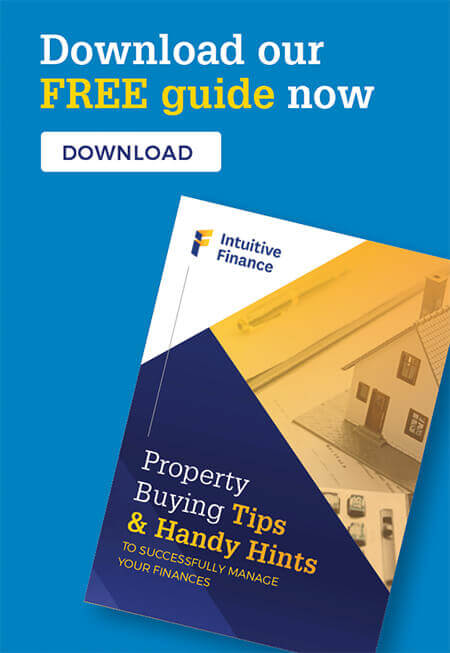There is plenty of talk about the state of the property investment sector isn’t there?
But, like so many things online, everything is not as it seems.
According to the latest Australian Bureau of Statistics housing finance figures, the total value of investment housing commitments was down $187 million, or 1.8 per cent, in June 2018 compared with May 2018.
Now, before everyone starts running around screaming about the sky falling, we need to consider what these numbers really mean.
The old normal
The booming Sydney market, which was driven as much by speculative buyers as anything else, lasted from about 2012 to 2017.
 Sydney’s property prices increased by about 75 per cent during that time and, as we are now reading about, are now settling to a level that is more representative of their true value.
Sydney’s property prices increased by about 75 per cent during that time and, as we are now reading about, are now settling to a level that is more representative of their true value.
The thing is, property markets in the rest of the country – apart from Melbourne which experienced a few periods of robust growth during the same period – weren’t up too much.
Prices were flat in most areas and were actually going backwards in places like Perth and Darwin due to local economic factors.
And, while Sydney got itself into a lather, the rest of Australia was just bobbing along with normal numbers of buyers, sellers and investors.
And that’s the point – the number of investors active in Sydney during that five-year period was simply not normal.
Rather, it was a sign of an unsustainable market, which would always return to its historical averages at some point in time – like now.
A smarter investment strategy
The thing is the number of investors active in the market are usually around the 20 per cent to 30 per cent mark, depending on the economic conditions at the time.
That is, owner occupiers generally reflect about 50 to 60 per cent of the market, with first homebuyers making up the remainder.
These numbers do fluctuate, but what usually doesn’t change is the fact that owner occupiers or homebuyers historically outweigh the number of investors in the market.
 At one point in time, however, the number of investors in Sydney were higher than homebuyers – which is part of the reason why its market was so hot.
At one point in time, however, the number of investors in Sydney were higher than homebuyers – which is part of the reason why its market was so hot.
That said, smart investors know to buy property when demand is reduced because there is less competition and that means a greater negotiating position.
So, it’s fair to say, that many of those Sydney investors were speculative rather than sophisticated – especially during the last two years of the boom.
They were hoping to ride a price upswing that they probably hoped would last forever.
Savvy investors, on the other hand, most likely bought into the Sydney market early and then moved on to other locations when prices started running away.
And that is what smart property investors are doing today – they are making the most of market conditions in locations that have yet to hit their peaks.
In fact, some may be watching Sydney and waiting for the heat to come out of property prices, because the Harbour City still remains an economic powerhouse and our most populous city.
Others have been active in other locations, such as Brisbane and Adelaide, because of their affordability and strong yields.
Wherever they are investing, they are also working with a team who can help them secure finance for the best properties in the optimal locations – while everyone else is sitting on their hands waiting for the next boom before blindly joining the fray.
Is finance halting everyone in their ongoing investment strategy?
Well, actually, Yes it is having an impact on everyone. It has to, that’s what the regulators wanted and that is what they are achieving.
I’m asked everyday “why can’t I continue on my investment journey” and it really is a great question. Fact is, that you are not alone if you are hitting some “snags” and not able to invest as you may have over the last 5 years. And this is what our regulators wanted.
They wanted the heat out of the markets and they wanted things to normalise and they have or are largely achieving this.
So what should I do?
OK, it’s a normal part of the cycle. Just as in the share market and the property markets, the finance “market” goes through cycles as well.
We’ve had the GFC and recessions in the past and we’ll also have “bumps in the road” again in the future but a lot of these measures being introduced are actually pre-emptive to try and avoiding the “boom/bust” cycles in which many people can suffer.
What’s our advice?
Firstly, you are not alone so please understand and accept that.
Secondly, understand that what is happening is a normal part of the cycle.
And thirdly, for now, and often, the right thing to do is to do nothing. Be patient and as we come out of this cycle (and things will be different they always are), there will be opportunities in the future.
Getting the right financial advice about property investment today
Sophisticated property investors understand that markets move in cycles, which is why they always adopt a long-term investment strategy.
They buy when others are not, and they don’t take much notice of the market noise usually created by the masses.
The world of banking and finance can be a pretty daunting one for both novice and sophisticated investors and since our establishment in 2002 we’ve focused on providing outstanding service and business standards.
This approach has been vindicated many times by our multi award-winning approach.
So, if you’d like to understand more about investing in property today, why not contact Intuitive Finance today to ensure you have the right information and expert support on your side from the very beginning.
If you’d like an expert to teach you more about why now is a great time to invest or if you have any other questions, please just contact us directly and we’ll be in touch.
The information provided in this article is general in nature and does not constitute personal financial advice. The information has been prepared without taking into account your personal objectives, financial situation or needs. Before acting on any information you should consider the appropriateness of the information with regard to your objectives, financial situation and needs.
- Timing the Market vs. Time in the Market - July 15, 2024
- On Market vs. Off Market Listings: What’s The Difference - June 17, 2024
- Impact of Victoria’s Land Tax Hike on Property Investors - June 3, 2024










